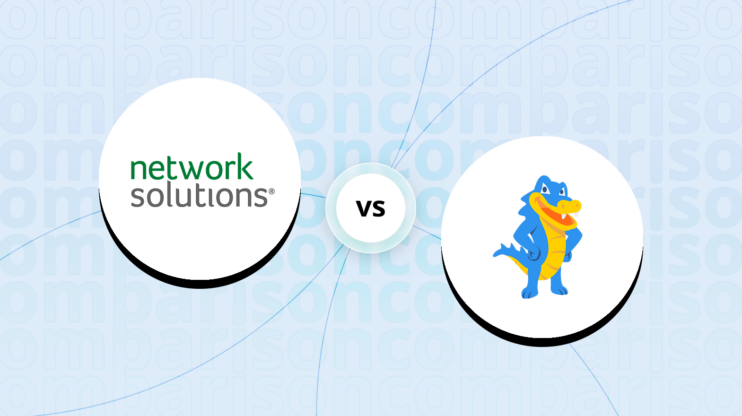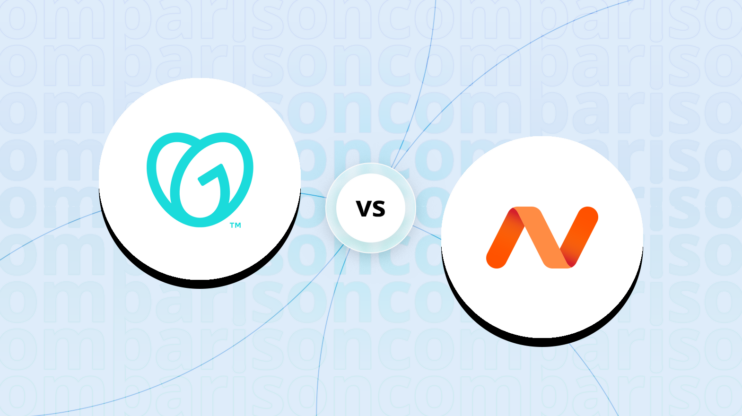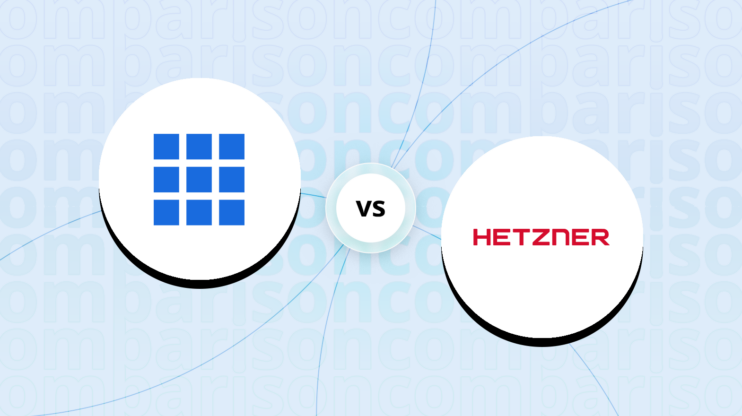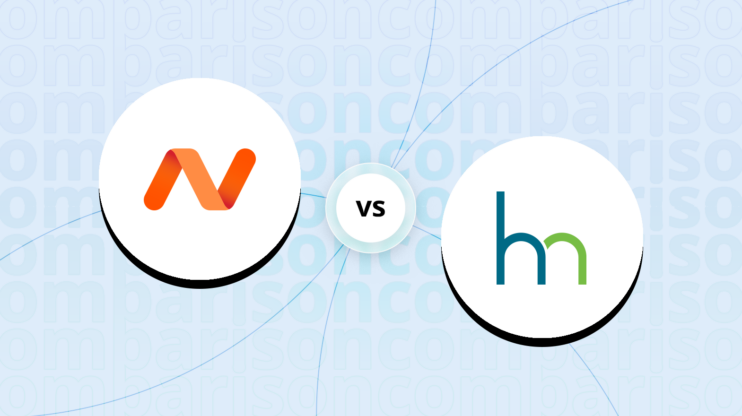Final verdict
Looking over Flywheel vs. Cloudways, both hosting providers offer strong features, but they cater to different needs and priorities.
-
Cloudways (Overall grade: 8.5)
is highly valued for its versatile, high-performance hosting solutions and flexible scaling options. It offers various hosting types, from cloud and dedicated hosting to comprehensive WordPress and ecommerce support. Cloudways excels in speed and performance with its advanced SSD hosting and numerous caching integrations, making it a top choice for businesses with dynamic sites or fluctuating resource needs. The platform provides robust security features, vertical scaling, and a pay-as-you-go model, which adds to its appeal. However, the lack of domain registration and email hosting may be a drawback for users looking for a more all-in-one solution, though its support via Rackspace and other email add-ons mitigates this for some.
Flywheel (Overall grade: 8.4)
stands out for its intuitive user interface and specialized managed WordPress hosting, making it ideal for agencies and professionals managing multiple sites. Notable features include free migrations, nightly backups, staging environments, and a variety of tools tailored to WordPress, like the Genesis Framework. Flywheel guarantees nearly perfect uptime and reliability, essential for high-traffic sites and multimedia websites. It also offers advanced security measures, including malware removal and plugin security alerts. However, Flywheel lacks email hosting services and relies on third-party providers like Google Apps for this functionality. While its pricing plans are straightforward, the recent changes and specific limitations on staging environments could be potential concerns for some users.
 Overall grade:8.4 |
 Overall grade:8.5 |
|
|---|---|---|
| Uptime and Availability | 9.7 | 9.5 |
| Hosting Performance | 8.2 | 8.8 |
| Hosting Security | 9.4 | 8.0 |
| Price | 8.1 | 8.6 |
| Hosting Features | 6.8 | 6.9 |
| Ease Of Setup | 8.9 | 9.0 |
| User Management | 7.8 | 8.2 |
| Customer Support | 8.5 | 9.2 |
| User feedback | 4.4/5 | 4.7/5 |
Hosting types offered
Both platforms provide a variety of hosting types, each designed to meet the different needs of users.
 |
 |
|
|---|---|---|
| Shared hosting | ||
| Cloud hosting | ||
| WordPress hosting | ||
| Ecommerce hosting | ||
| VPS hosting | ||
| Dedicated hosting |
Although both offer a variety of hosting plans tailored to different needs, in
certain cases, one platform may prove to be more suitable.
features, making it a better choice for businesses prioritizing long-term growth and stability in their ecommerce endeavors.
Detailed comparison
Uptime and availability
Evaluates the average uptime statistics, uptime guarantee and overall availability of the hosting
provider
Score Components:
- Uptime percentage (30%): evaluates the uptime statistics in given period of time
- Uptime guarantee (20%): Assesses if the platform offers an uptime guarantee and
whether the actual uptime matches the promised guarantee. - General performance (25%): Evaluates how fast is the average response time and overall
it’s stability. - Responsiveness (10%): Adaptability to different devices and screen sizes.
- Availability (25%): Reflects the total downtime and number of outages.
 9.7
9.7
 9.5
9.5
🏆 Winner Flywheel: Exceptional uptime and reliable performance.
Flywheel provides a nearly perfect uptime guarantee and maintains a stellar performance in real-world conditions. Over a two-week monitoring period, it achieved 100% uptime with no outages, and an impressive average response time of 371ms. The support system offers 24/7 availability, including phone support for customers with higher spending, ensuring timely assistance.

Cloudways also excels with a 99.99% uptime guarantee and even achieved 100% uptime in previous years. With an average server response time of 229ms and various managed cloud hosting options, it suits different user needs. However, it lacks domain registration and email hosting services, which can be a drawback for some users.
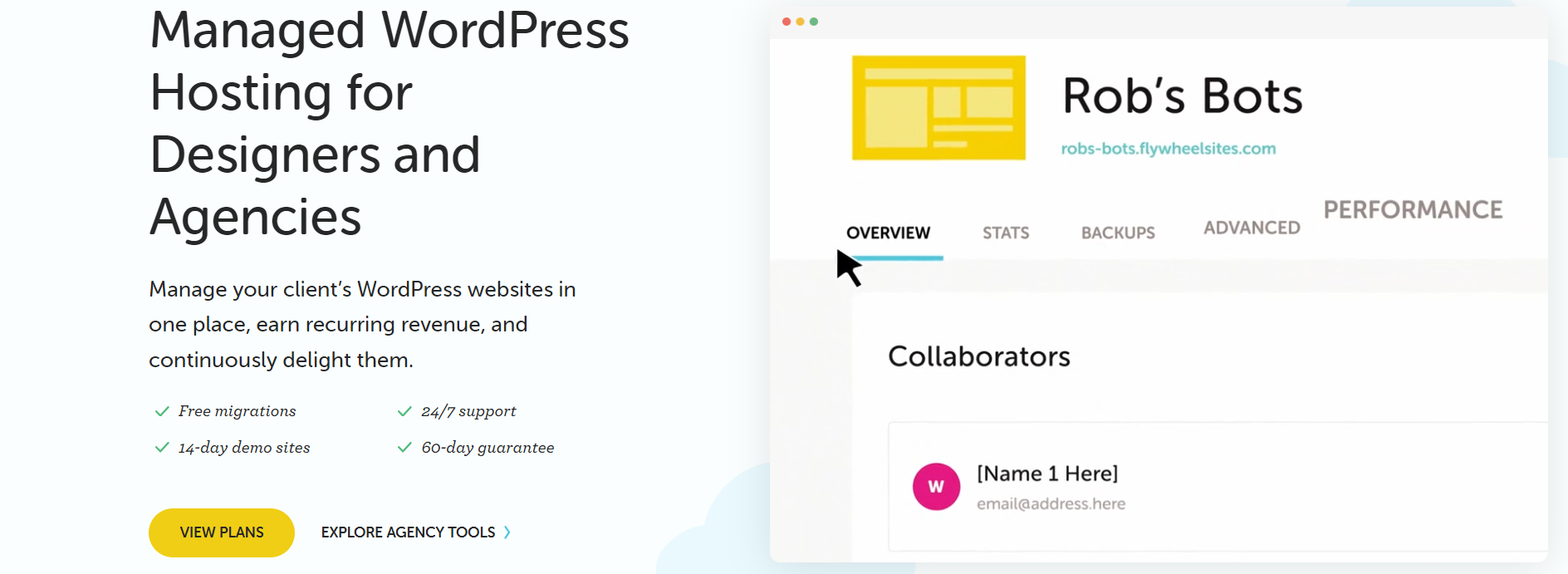
When reliability and performance are critical, Flywheel shines as a top choice, offering impeccable uptime and swift response times to meet demanding needs.
Hosting performance
Score Components:
- Hosting speed (30%): This includes SSD quality, Load times, PageSpeed score ranges,
additional information on website speed, built-in plugins for performance enhancement, available caching
methods, and CPU/RAM options - CDN (20%): Considers whether CDN is available or not, whether it’s free or paid, and
the quality of the CDN service - Available data centers (30%): Evaluates the number of data centers and their locations
globally. - Scalibility (20%): Looks at whether elastic scaling is available, the process required
to scale (manual upgrade vs. automatic scaling), the presence of dedicated servers, and the costs
associated with scaling.
 8.2
8.2
 8.8
8.8
🏆 Winner Cloudways: Versatile and high-performance hosting solution for your needs.
When comparing the general performance of Flywheel and Cloudways, Cloudways takes the lead with its SSD hosting, which is three times faster than traditional HDDs. Cloudways also has advanced caching integrations with Memcached, Varnish, Nginx, and Redis, providing an overall quick and efficient load time. Flywheel, on the other hand, offers managed caching and uses super-fast servers, but the detailed caching and multiple layers offered by Cloudways give it a slight edge. Both offer CDN services to speed up page loads, but Flywheel uses Fastly, ensuring high-speed performance. While Flywheel ensures dedicated resources and dedicated servers for WooCommerce, Cloudways offers a seamless experience with its built-in PHP 8 servers and free updates, which benefits dynamic sites.
Website Speed
Both Flywheel and Cloudways put a significant emphasis on website speed, but Cloudways edges out with its advanced SSD hosting and built-in caches like Redis and Varnish. Flywheel’s FlyCache technology and CDN powered by Fastly ensure quick page loads; however, Cloudways’ integration of NGINX, Apache, and MariaDB, combined with PHP-FPM, results in better server request handling and faster load times. Additionally, the use of multiple caching plugins in Cloudways offers a performance boost that Flywheel’s systems, while effective, can’t quite match.
Scalability
Scalability with Cloudways is very flexible since they offer vertical scaling, allowing users to adjust server resources like RAM, CPU, and storage easily, although the exact cost for scaling isn’t provided. Flywheel’s approach involves custom-built plans tailored to specific needs and higher traffic, with costs determined based on the site’s requirements. Both services promise dedicated servers, but Flywheel explicitly mentions it for WooCommerce. Cloudways’ ease of scaling resources without extensive plan changes makes it a convenient choice for growing businesses, while Flywheel offers more structured custom plans.
Hosting security
and regulatory requirements
Score Components:
- Technical security measures (40%): This includes encryption, firewalls, DDoS
protection, secure configurations, server monitoring, access control and availability of security addons
(e.g Sitelock security). - Operational security measures (30%): Encompasses data privacy, backups and data
redundancy. - Compliance and certifications (20%): Adherence to legal and regulatory requirements
(e.g., GDPR, HIPAA) and possession of certifications (e.g., ISO 27001, SOC 2). - Business and reliability (10%): Factors in the provider’s reputation, uptime
guarantees, and customer support.
 9.4
9.4
 8.0
8.0
🏆 Winner: Flywheel: Offering robust security features and broad compliance measures suited for rigorous data protection needs.
Both Flywheel and Cloudways have notable differences in their approaches to technical and operational security, as well as in their compliance with regulations.
Technical security measures:
Flywheel and Cloudways both offer free SSL certificates and support the latest PHP versions, with Flywheel supporting PHP 8.1 and Cloudways supporting PHP versions up to 8.2. Flywheel uses a dedicated WAF and intelligent IP blocking to detect and block intruders quickly, while Cloudways provides server and platform-level firewalls along with a bot protection feature. Flywheel includes nightly backups and auto-healing technology for service failures, whereas Cloudways’ auto-healing servers and advanced caches like Memcached, Varnish, and Redis ensure stable performance. Flywheel offers plugin security alerts and free malware removal, whereas Cloudways collaborates with Patchstack for a vulnerability scanner to detect WordPress issues.
Operational security measures:
Flywheel provides 24/7/365 support from WordPress experts and free site migrations, ensuring customer operations are secure and reliable. Cloudways offers 2FA, IP whitelisting, regular security updates, and DDoS mitigation through Cloudflare Enterprise. Both platforms support access control and secure data storage, but Flywheel has a federated identity service for simplified authentication. Flywheel’s role-based permission model allows for detailed access control, whereas Cloudways focuses on application isolation to keep WooCommerce stores secure from other applications on the same server.
Compliance and certifications:
Flywheel is fully compliant with several major regulatory standards, including HIPAA, GDPR, 21 CFR Part 11, GCP, and also holds SOC 2 audit certification. Cloudways addresses GDPR through its strong security measures, and utilizes PCI-DSS compliant hardware from its cloud providers like Google Compute Engine and Amazon AWS. However, Cloudways does not explicitly confirm PCI-DSS or HIPAA compliance for its managed web-hosting service.
 |
 |
|
|---|---|---|
SSL certificate |
Free SSL and third-party |
Free 1-click SSL |
Additional security features |
WAF, intelligent IP blocking, free malware removal, auto-healing technology, nightly backups |
DDoS mitigation, 2FA, IP whitelisting, vulnerability scanner, bot protection |
PHP versions |
PHP 8.1 |
PHP 5.6 to 8.2 |
GDPR compliance |
Yes |
Security measures align but not explicitly specified |
HIPAA compliance |
Yes |
Not specified |
PCI compliance |
Not specified |
PCI-DSS compliant hardware from underlying providers |
Hosting features
Score Components:
- Domains (20%): Assesses the availability of a free domain, domain purchase options, and
pricing - Email (15%): Considers if the provider offers full email hosting, or is reselling
third-party service, and if the email is only transactional or not - Website builder (15%): Checks if website builder is available, and it’s user
friendliness and overall the level of customization allowed. - Staging environment (20%): Determines if a staging environment is available, allowing
for testing changes before going live. - FTP & SFTP accounts (10%): Evaluates if and how easily users can access FTP and
SFTP accounts - Git and SSH access (20%): Assess whether Git is integrated into the hosting service and
if SSH access is provided
 6.8
6.8
 6.9
6.9
🏆 Winner
Cloudways: Offers a versatile, high-performance hosting solution with robust security features and flexible scaling options.
Flywheel and Cloudways both cater to users looking for reliable and efficient hosting solutions tailored to different needs. Flywheel specializes in managed WordPress hosting, making it ideal for those who want to focus on their content while leaving the technical details to experts. It offers managed services like free migrations, software updates, security, and caching, ensuring smooth operation with minimal hassle. Flywheel also provides additional benefits like premium WordPress themes, the Genesis Framework for website building, and local development environments. Their staging sites and nightly backups make development safe and recovery easy. However, Flywheel lacks email hosting directly, recommending alternative providers like Google Apps instead.
In contrast, Cloudways offers a more flexible approach, catering to various types of applications, including WooCommerce. The platform provides an optimized stack with SSD hosting, built-in caches, and Cloudflare integration to ensure fast performance. Security is robust with features like dedicated firewalls, SSL certificates, and application isolation. Cloudways also supports vertical scaling and offers a pay-as-you-go billing model, making it suitable for projects with fluctuating resource needs. Despite offering a wide range of features and extensive platform support, Cloudways does not include a website builder, potentially making it less user-friendly for beginners compared to Flywheel.
 |
 |
|
|---|---|---|
Free domain |
No |
No |
Free SSL |
Yes |
Yes |
Email hosting |
No |
Yes, Rackspace Email |
Website builder |
Yes (Genesis) |
No |
Staging environment |
Yes |
Yes |
FTP & SFTP account |
Yes |
Yes |
Git and SSH access |
Yes |
Yes |
Free backup |
Yes |
Yes |
Money back guarantee |
Yes (60 days) |
No |
Both providers support a range of users from beginners to experts with user-friendly website builders and WordPress staging areas. However, in terms of developer tools, both Flywheel and Cloudways offer robust options including SSH access, support for multiple programming languages, and Git for version control, thus appealing to developers looking for advanced capabilities.
Email services:
Email services at Flywheel do not provide email hosting, instead recommending third-party services like Google Workspace. Cloudways, however, offers email hosting through Add-ons like Rackspace Email and Elastic Email, making it easier for users to manage transactional emails and set up email campaigns. This difference can be significant for users who prefer an all-in-one solution versus integrating third-party services.
Price
Score Components:
- Plan value (40%): What each pricing tier offers.
- Transparency and clarity (30%): Clearness of pricing structures.
- Flexibility of plans (20%): Range of options to suit different budgets.
- Hidden costs (10%): Additional expenses not included in the plan.
 8.1
8.1
 8.6
8.6
🏆 Winner
Cloudways: Efficient hosting provider with diverse pricing plans and extensive resource options.
Evaluating the pricing of plans among various hosting providers can be complex due to their differing pricing and renewal strategies. Additionally, certain plans require annual commitments, which adds to the difficulty of making comparisons. The prices listed are based on monthly commitments; plans requiring annual commitments are indicated. Additionally, although some providers offer identical plans for WordPress and shared hosting, we have created separate tables for each to enhance clarity.
When comparing Flywheel and Cloudways, Flywheel offers straightforward WordPress hosting plans starting at $13 per month (Tiny Plan) all the way up to custom pricing for larger needs. Each plan includes features like storage, bandwidth, and additional benefits like free migrations and 24/7/365 chat support. Cloudways, on the other hand, provides a variety of server options, including DigitalOcean, AWS, GCE, and more. Prices start at $11 per month for WordPress hosting with DO1GB, with scalable options up to $3,569.98 per month for AWS 24XL hosting. Cloudways emphasizes CPU and RAM customization for different business needs, making its plans more suitable for users requiring diverse and high-performance resources.
 |
 |
|---|---|
|
Tiny Plan $13
1 site, 5GB storage, 20GB bandwidth, free migrations, 24/7 chat support. |
DO1GB $11
1 site, 25GB storage, 1TB bandwidth, 24/7 support. |
|
Starter Plan $25
1 site, 10GB storage, 50GB bandwidth, free migrations, 24/7 chat support. |
DO2GB $24
1 site, 50GB storage, 2TB bandwidth, 24/7 support. |
|
Freelance Plan $96
Up to 10 sites, 20GB storage, 200GB bandwidth, free migrations, 24/7 chat support. |
DO4GB $46
Multiple sites, 80GB storage, 4TB bandwidth, 24/7 support. |
|
Agency Plan $242
Up to 30 sites, 50GB storage, 500GB bandwidth, free migrations, 24/7 chat support. |
DO8GB $88
Multiple sites, 160GB storage, 5TB bandwidth, 24/7 support. |
|
Custom Plan Custom pricing
30+ sites, custom storage, custom bandwidth, free migrations, 24/7 chat support. |
DO16GB $149
Multiple sites, 320GB storage, 6TB bandwidth, 24/7 support. |
 |
 |
|---|---|
|
N/A
|
DO1GB $11
1 site, 25GB storage, 1TB bandwidth, 24/7 support. |
 |
 |
|---|---|
|
Tiny Plan $13
1 site, 5GB storage, 20GB bandwidth, custom disk space, performance insights. |
AWS Small $38.56
1 site, 20GB storage, 2GB bandwidth, 24/7 support. |
|
Starter Plan $25
1 site, 10GB storage, 50GB bandwidth, custom bandwidth, managed plugin updates. |
Lin1GB $14
1 site, 25GB storage, 1TB bandwidth, 24/7 support. |
|
Freelance Plan $96
Up to 10 sites, 20GB storage, 200GB bandwidth, auto-healing technology, site cloning. |
GCE Small $37.45
1 site, 20GB storage, 2GB bandwidth, 24/7 support. |
|
Agency Plan $242
Up to 30 sites, 50GB storage, 500GB bandwidth, SSH Gateway, Google Analytics add-on. |
Vultr1GB $14
Multiple sites, 25GB storage, 1TB bandwidth, 24/7 support. |
|
Custom Plan Custom pricing
30+ sites, custom storage, custom bandwidth, staging sites, billing transfer. |
Lin2GB $28
Multiple sites, 50GB storage, 2TB bandwidth, 24/7 support. |
Enterprise plans
Flywheel’s Agency and Custom Plans cater to enterprises, offering flexible site management with features like auto-healing technology and the ability to manage up to 30+ sites, starting at $242 per month. Cloudways offers extensive options, including AWS and GCE hosting, providing up to 192GB RAM with 96 Core processors for $3569.98 per month, allowing high scalability and performance. Both providers offer advanced support, but Cloudways stands out with its variety of server choices and resource customization, making it a compelling choice for enterprise needs.
Ease of setup
platform.
Score Components:
- Site migration (25%): Assesses whether the provider offers tools for site migration,
either automated or manual, and whether these services are free or require a fee. - Admin panel usability (35%): Evaluates the type of admin panel provided, such as the
standard cPanel or a custom solution, focusing on its accessibility and user-friendliness for both
technical and non-technical users. - Setup features (20%): Examines the availability and ease of use of various setup
features, including FTP accounts, file managers, email account setup, PHPMyAdmin, and easy CDN
configuration. - Help center quality (20%): Measures the quality and accessibility of the provider’s
help center resources, including articles and tutorials.
 8.9
8.9
 9.0
9.0
🏆 Winner
Cloudways: In terms of ease of use, Cloudways stands out due to its flexible and affordable site migration options, intuitive custom admin panel, advanced setup features, and a highly praised help center.
Cloudways provides an intuitive and efficient experience for both beginners and advanced users.
Flywheel offers a custom admin panel designed for managing WordPress sites. It is built with a focus on ease of use, providing accessibility for both technical and non-technical users. The interface is clean and well-organized, featuring various tools for site management, local development environments, and blueprints for saving configurations. Flywheel’s dashboard aims to streamline operations, enabling users to manage multiple sites with minimal friction.
Cloudways, on the other hand, also offers a custom control panel that excels in simplicity and user-friendliness. It provides 1-click actions for various tasks like backup, restore, and application launches, making it equally accessible for seasoned developers and beginners. The intuitive layout includes options for vertical scaling and server management, ensuring users can handle technical and administrative tasks without getting bogged down by complexities. The pre-installed Git and SSH/SFTP access add a layer of convenience for developers who need advanced functionality.
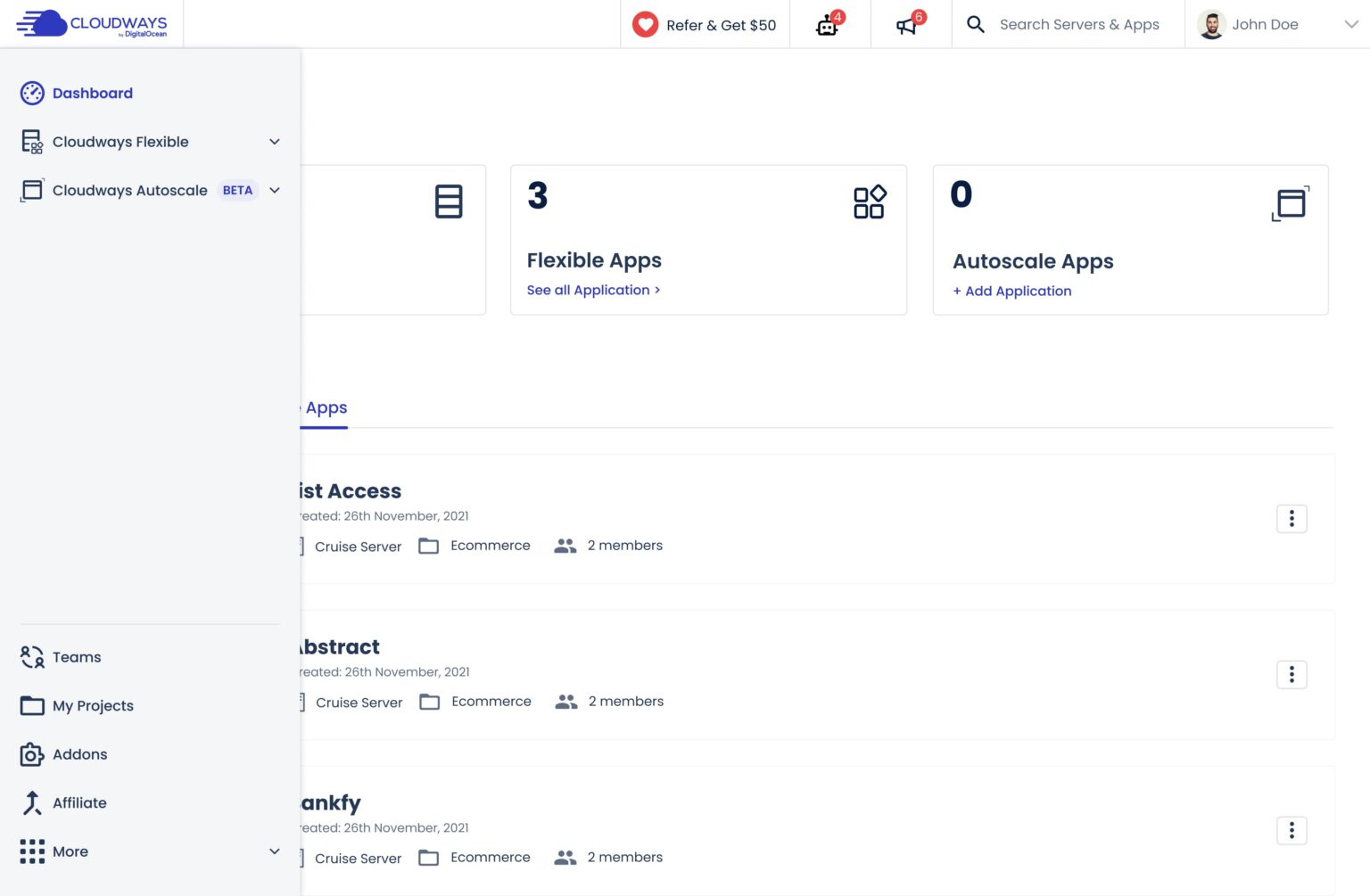
Both providers offer free migration options, facilitating smooth transitions from other hosts. Flywheel allows unlimited free migrations for all sites, complete with a dedicated migration dashboard to prioritize and monitor progress. Cloudways also provides a free migration service for the first website, making it easier for users to switch hosting providers. The migration tools from both platforms make transitioning relatively hassle-free, but Flywheel’s unlimited free migrations give it an edge in terms of flexibility.
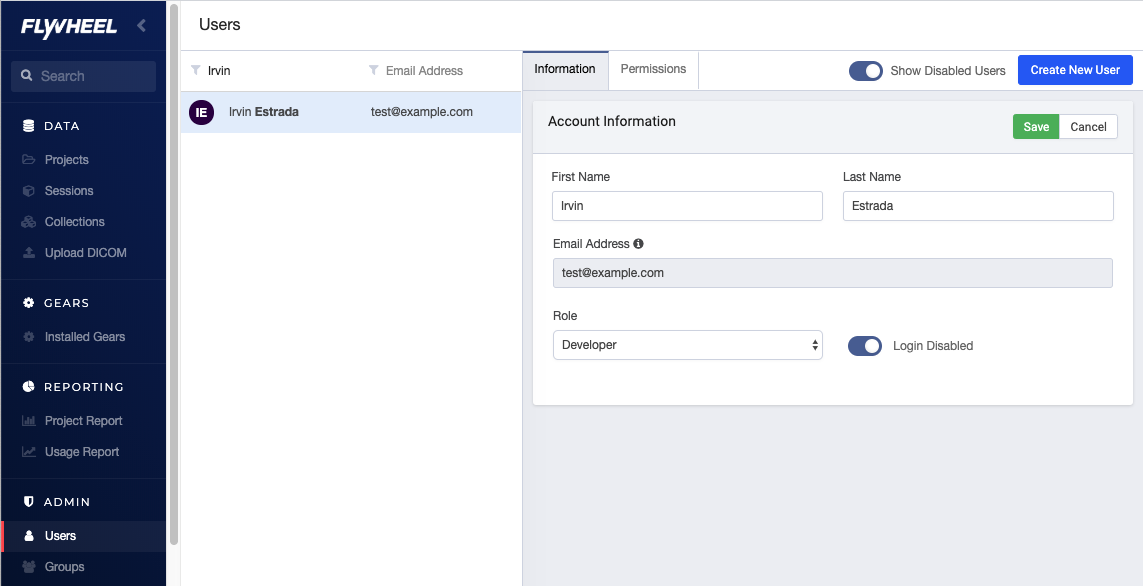
Flywheel’s help center is comprehensive, featuring 24/7/365 chat support, phone support during business hours, and extensive documentation covering a broad range of topics. Cloudways offers similar 24/7 live chat support, alongside a dynamic knowledge base and an active community for troubleshooting. Both platforms provide detailed articles and guides, making their help centers highly accessible and informative. However, Flywheel’s round-the-clock chat support and managed plugin updates enhance the overall support experience.
The platforms provide extensive knowledge bases filled with guides, how-to articles, and instructional content. Flywheel offers a wide range of resources alongside 24/7 chat and phone support. Cloudways also boasts a detailed help center with an intuitive search function and around-the-clock support via live chat, phone, and ticketing, ensuring comprehensive user support.
User management
accessibility.
Score Components:
- Role customization (40%): Flexibility in creating and defining user roles and
permissions. - Ease of management (30%): User interface and tools for managing users.
- Access control (20%): Effectiveness of access control measures for different user
levels. - Scalability (10%): Ability to manage a growing number of users efficiently.
 7.8
7.8
 8.2
8.2
🏆 Winner Cloudways: Cloudways edges out its competitor with a more detailed approach to user management.
Flywheel and Cloudways offer different strengths in user management and permissions. Flywheel provides full access to collaborators with the flexibility to manage nearly all aspects of a website, except billing and critical site modifications. Collaborators can add/remove other users and access the site’s assets via SFTP. In contrast, Cloudways leverages native WordPress role management, allowing for a more granular delegation of responsibilities across roles like Administrator, Editor, and Contributor. This flexibility makes Cloudways suitable for diverse team compositions where varying levels of access are required.
The user interface for managing users on Flywheel is primarily centralized in its own dashboard, making it user-friendly by consolidating management tools in one place. Collaborators can be added or removed with simple actions directly within the Flywheel dashboard. On the other hand, Cloudways uses the WordPress Admin Panel for user management, necessitating navigation through WordPress’ backend. Although it requires additional steps, it does benefit from WordPress’ familiar and wide-ranging administrative capabilities, which can be advantageous for experienced users.
Both platforms ensure effective access control, but Flywheel’s seamless login feature for WordPress admin access via the Flywheel dashboard simplifies the process for users, reducing login steps. This feature can be disabled by contacting support if needed. Cloudways, through WordPress, supports comprehensive role management, ensuring that as teams grow, the roles can be adjusted dynamically without sacrificing security or accessibility. Both platforms can proficiently handle increasing numbers of user accounts, although managing these through Flywheel’s dashboard might be easier for less technical users compared to navigating through WordPress on Cloudways.
Flywheel User Roles Table:
| Role | Description | Access highlights |
|---|---|---|
| Collaborator | Full access to manage site excluding billing. | View site, add/remove collaborators, manage database, access via SFTP. |
Cloudways User Roles Table:
| Role | Description | Access highlights |
|---|---|---|
| Super Admin | Full network admin capabilities. | Can manage entire network and admin features. |
| Administrator | Full administrative privileges. | Can manage everything on the site including plugins and themes. |
| Editor | Can manage and publish posts, including those of others. | Access to content creation, editing, and publishing for all users. |
| Author | Can create and manage their own posts. | Limited to authoring and managing personal content. |
| Contributor | Can create and edit their own posts but not publish them. | Limited to drafting and editing personal posts. |
| Subscriber | Can manage their own profile. | Minimal access, focused on personal profile management. |
Customer support
hosting provider.
Score Components:
- Support communication channels (30%): Measures the variety of customer support types
provided (live chat, chatbot, email, phone, etc.) - Availability (20%): Assesses the availability hours for each channel, including 24/7
support options. - Technical support quality (30%): Assesses whether the provider offers comprehensive
technical support, including hardware upgrades (e.g., HDD to SSD), software installations, and web
server configuration changes. - Enterprise support (20%): Checks if there are dedicated or priority support services
for enterprise-level customers.
 8.5
8.5
 9.2
9.2
🏆 Winner Cloudways: Offers comprehensive customer service with multiple channels, including premium options for enhanced support.
 |
 |
|
|---|---|---|
Phone support |
||
Live chat support |
||
Chatbot |
||
Email/ticket support |
||
Enterprise support (dedicated agent, priority support) |
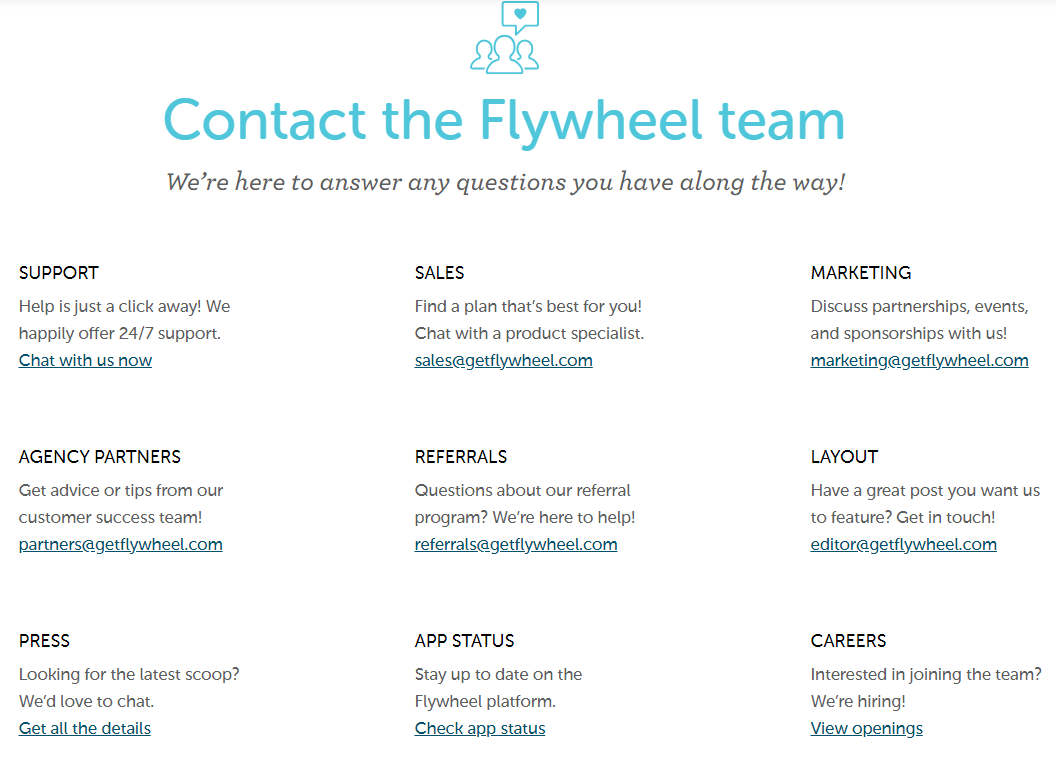
Cloudways and Flywheel both offer strong customer support, but there are some key differences. Cloudways provides a variety of premium support options such as phone support and a private Slack channel, along with faster response times for high-priority tickets depending on the support plan chosen. Flywheel also offers 24/7 chat and email support, and has dedicated account managers for personalized assistance and quarterly business reviews.
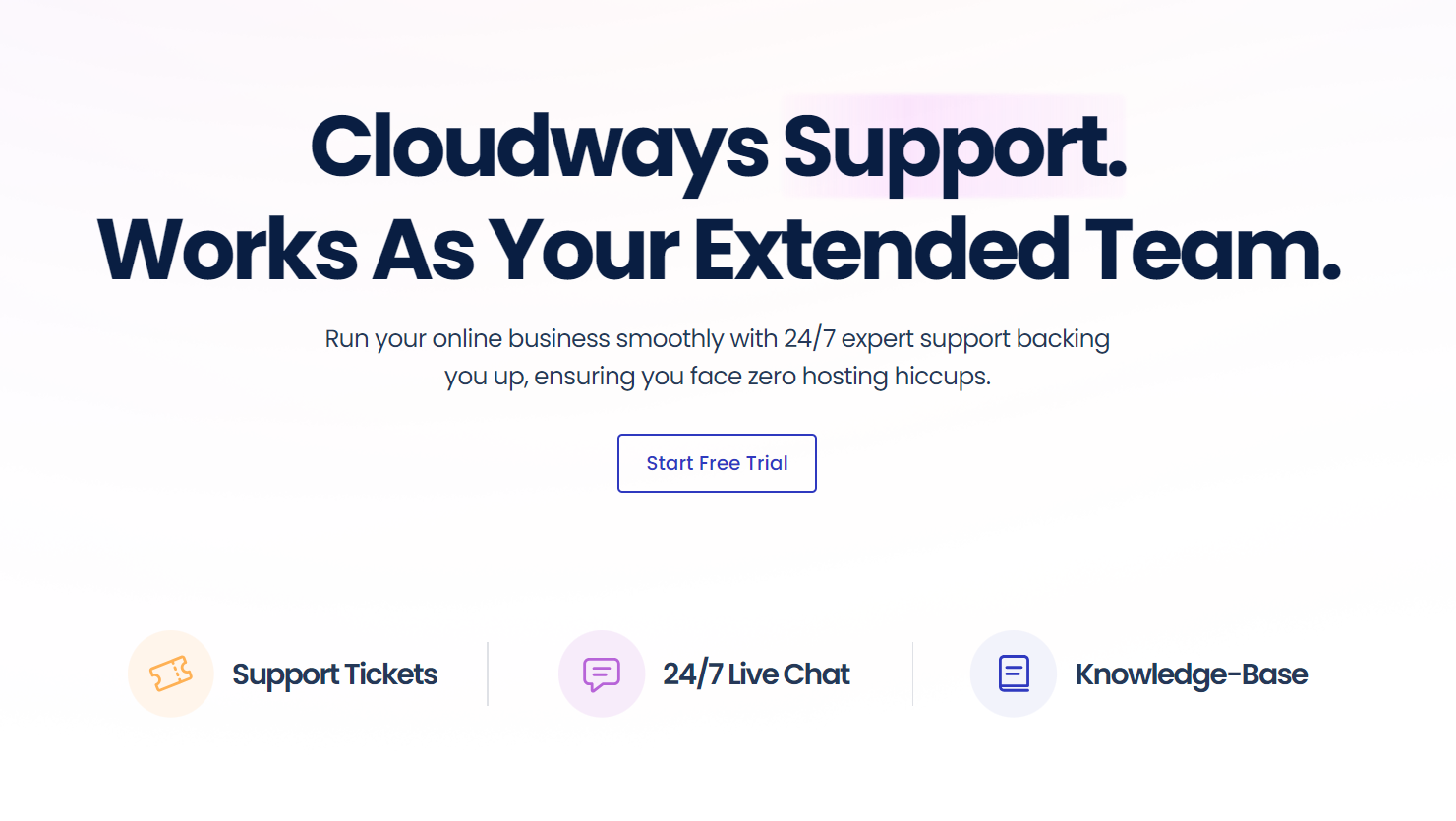
On the other hand, Flywheel emphasizes additional features such as a migration dashboard, free migrations, and support for WooCommerce, making it particularly appealing to specific user groups like agencies, freelancers, and high-traffic sites. Both hostings offer a range of customer support channels, but the advanced premium options make Cloudways stand out slightly more.
User feedback
Flywheel is highly regarded for its intuitive user interface, efficient WordPress management, and reliable speed and performance. Customers appreciate the ease of site migration, robust support, and included features like SSL and backups. However, some users highlight concerns over recent pricing changes, slower customer service response times, and issues with email limits and staging environments. Despite a few drawbacks, Flywheel is praised for its agency-oriented focus, making it a strong choice for professionals managing multiple client websites.
Cloudways consistently receives high praise for its ease of use, robust performance, and excellent customer support. Many reviewers highlight the platform’s intuitive interface, effective server management features, and the ability to choose from top-tier cloud providers like AWS and DigitalOcean. Users appreciate the scalable hosting options and reliable customer service, which often includes quick response times and helpful assistance. However, some customers note areas for improvement, such as the absence of email hosting, limitations on server vendor choices, and discrepancies in pricing transparency. Overall, Cloudways is deemed a solid hosting provider, especially valued for its managed hosting features and performance enhancement capabilities.
FAQ
Which platform is better suited for hosting WordPress websites?
Flywheel and Cloudways both provide strong WordPress hosting solutions, with Flywheel offering specialized features like the Genesis Framework, FlyCache, and staging environments tailored to WordPress users. Cloudways, on the other hand, supports a broader range of hosting types, including WordPress, and provides robust performance enhancements with advanced SSD hosting and caching integrations. The best choice depends on the specific needs, but both platforms excel in hosting WordPress sites.
Which hosting service offers more scalability options for growing websites?
Cloudways offers more flexible scalability options compared to Flywheel, with vertical scaling capabilities that allow users to easily increase server resources such as RAM, CPU, and storage. Flywheel, while offering custom-built plans for higher traffic and specific needs, doesn’t provide the same level of on-demand scalability as Cloudways. Hence, Cloudways is more convenient for businesses needing dynamic resource allocation.
Which hosting service offers better security features?
Both Flywheel and Cloudways provide comprehensive security features, but they have different approaches. Flywheel offers dedicated WAF, intelligent IP blocking, nightly backups, and free malware removal. Cloudways includes server and platform-level firewalls, bot protection, and advanced caching integrations like Redis and Varnish. While both platforms are robust in security, Flywheel’s managed WordPress-specific security measures give it a slight edge.
What are the major differences in pricing and value between Flywheel and Cloudways?
Flywheel offers straightforward WordPress-centric hosting plans starting at $13 per month, with features like free migrations, 24/7 chat support, and custom-built plans for higher needs. Cloudways provides a broader range of pricing options starting at $11 per month, depending on the server provider chosen, with customizable resources and a pay-as-you-go model. Flywheel’s simplicity appeals to WordPress users, while Cloudways offers better value for users needing diverse and high-performance resources.
How do the providers handle email hosting and what features are included?
Flywheel does not offer built-in email hosting and recommends third-party services like Google Workspace, which may be inconvenient for users preferring an all-in-one solution. Cloudways, however, offers email hosting add-ons like Rackspace Email, allowing users to manage transactional emails and set up campaigns easily within the platform. This difference makes Cloudways a more comprehensive solution for users needing integrated email hosting features.
The making of this blog
We followed a clear, step-by-step process to write and research this article.











